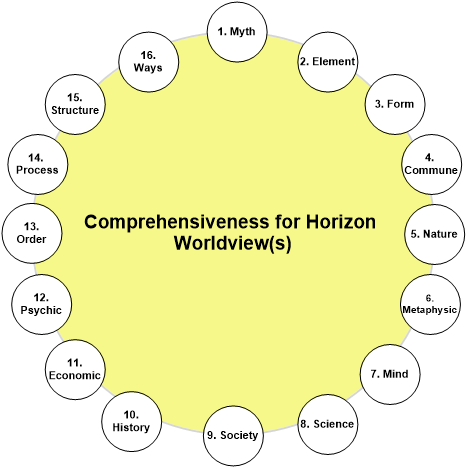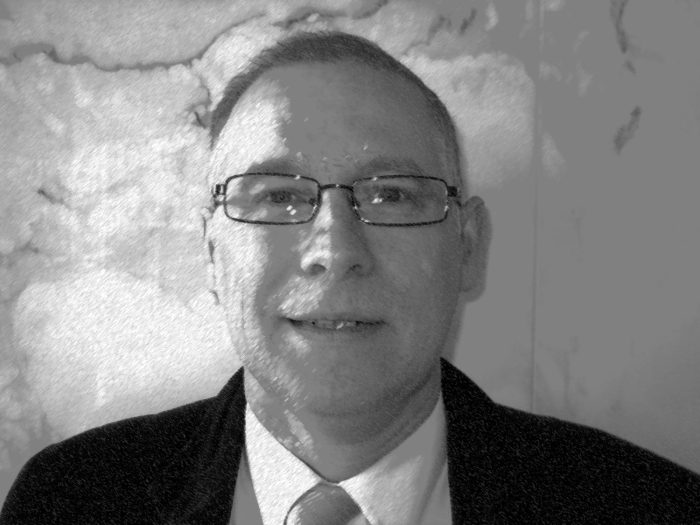Horizon Worldview(s) is/are belief system(s) where a person might claim a singular and stable worldview, but, in fact, has several or more views of the outside world, as explanations more than mere descriptions. A person’s views of the world shift like our view of the horizon. It shifts, not merely as a change of mind, but as a person’s attention shifts to completely different questions of their perspective(s).
The aim in this process is comprehensiveness, which should not be mistaken for completeness or perfection. It is the willingness and the capacity to scope outwards even if our learning is incomplete.
The diagram here shows 16 directions in the history of western philosophies. It is not suggested that full compatibility can be achieved. There are many conflicts between these ideas. However, the conflict is not as stark as many polemists make out the case. Often disagreement in western (and eastern) philosophies will still scope to a compatible level. Different frames are chosen, even if there are disagreements with several claims.
The sixteen directions here are not what we would call each horizon worldviews. Rather they are methodological tools which construct horizon worldviews. The key thinkers listed in each set of brackets are only a few in those directions of learning, but they play a distinct role in setting out the methodological approach.

Comprehensiveness For Horizon Worldview
1. Features of Myth (Homer, Euripides)
2. Physical Elements (Thales, Anaximander, and Anaximenes)
3. Forms, Constants, Impermanence (Parmenides, Heraclitus, Plato)
4. Calm, (Self-) Criticism, Dialogue (Zeno, Socrates, Seneca)
5. Natural Dispositions and Characteristics (Aristotle)
6. Conceptions of Metaphysics (Duns Scotus, Thomas Aquinas, William of Ockham, Albertus Magnus)
7. Associations or Categories of the Mind (David Hume, Immanuel Kant)
8. Principles of The New Science (Giambattista Vico, Isaac Newton, John Locke)
9. Sociological Principles (Thomas Hobbes, John Locke, Auguste Comte, John Stuart Mill)
10. Conceptions of History (Georg Wilhelm Friedrich Hegel)
11. Laws of Economic Morality (Adam Smith, Karl Marx)
12. Principles of Modern Psychology (Wilhelm Wundt, William James)
13. Principles of Modern Logic, Semiotics, and Semantics (Charles Sanders Peirce, Gottlob Frege, Bertrand Russell, Ludwig Wittgenstein)
14. Principles of Process, Historical Change, Universal Relative (dis-) Constants (Albert Einstein, Henri Bergson, Martin Heidegger, Alfred North Whitehead, Maurice Merleau-Ponty, R. G. Collingwood)
15. Structures of Anthropology and Linguistics (Ferdinand de Saussure, Claude Lévi-Strauss)
16. Post-Structural Ways of Life (Roland Barthes, Jacques Derrida, Michel Foucault, Gilles Deleuze, Judith Butler, Jean Baudrillard and Julia Kristeva)

